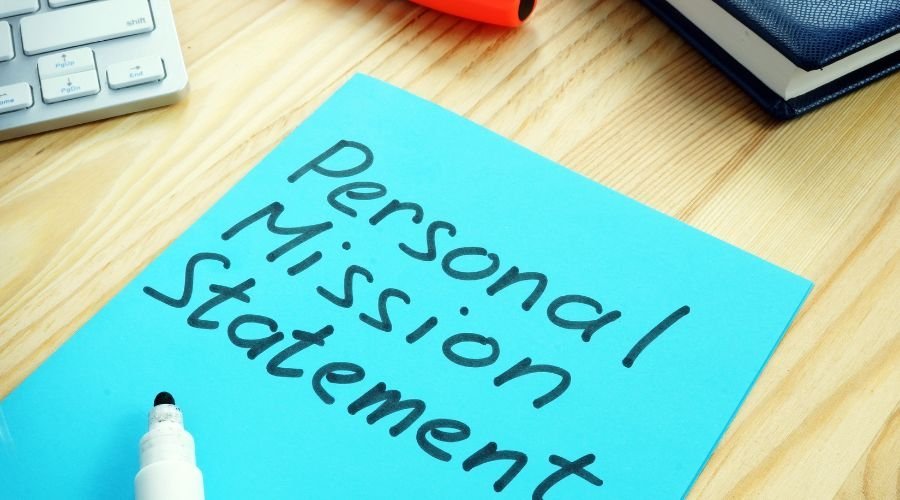Ever wondered how to make your college application stand out? Your personal statement is key. It lets you share your unique story and show your passion and potential. But what makes a personal statement truly compelling, and how can you craft one that wows admissions officers?

Key Takeaways
-
The personal statement is an opportunity to share who you are beyond just your grades and test scores.
-
Competitive programs use the personal statement to evaluate your fit and identify candidates they believe can make a lasting impact.
-
Crafting a compelling personal statement takes time and multiple drafts, so it’s important to start the process early.
-
Focus on highlighting your strengths, experiences, and how they align with the program you’re applying to.
-
Avoid common pitfalls like using clichés, covering too many topics, or failing to proofread effectively.
What is a Personal Statement?
A personal statement is key in the university application process. It lets students share their unique qualities, achievements, and goals. This essay is a chance to tell a story that shows who they are and where they’re headed.
Defining a Personal Statement
The personal statement is more than just grades and scores. It’s a way to show passion and fit for the chosen program. By telling a compelling story, students can stand out and make a strong impression.
Importance in the Application Process
In today’s competitive world, the personal statement is vital. It helps admissions officers understand an applicant’s personality, goals, and potential. A well-written statement can greatly improve a student’s chances of getting into their dream program.

Key Personal Statement DeadlinesDeadline DateOxford and Cambridge, medicine, dentistry, and veterinary courses15 October 2024Majority of undergraduate courses29 January 2025Clearing applications30 June 2025
UCAS has specific rules for personal statements. Writing a strong statement is tough. But, starting early, getting feedback, and matching the content to the program’s values can help.
University Personal Statement Tips
Start Early and Leave Time for Feedback
Creating a standout personal statement takes time. It’s key to start early and be ready to revise your statement many times before you apply. Start by thinking about your experiences, themes, and key points you want to share. This helps you tell a consistent story that fits your application perfectly.
Know Your Audience and Purpose
When writing your personal statement, it’s vital to know your audience and purpose. Your statement should be a key part of your application, not a full memoir. It should show how your experiences fit your chosen program and how you can add to the university community. Keep revising until your purpose shines through.
A good personal statement has a clear start, shows your academic and extracurricular achievements, and ends with a strong call to action. Use words like “achieved,” “developed,” and “learned” to make your statement stronger. Stay away from clichés, exaggerations, and complex language. Keep it real and simple.
By starting early, getting feedback, and understanding your audience, you can make a personal statement that highlights your strengths and matches your dream program.
Showcasing Your Strengths
When writing your personal statement, it’s key to show off your unique strengths. This is your chance to tell admissions officers who you are, beyond grades and scores. By focusing on your best qualities, you show why you’re the perfect fit for their program.
Sharing specific details about your achievements can make a big difference. Numbers like team size, funds raised, or project outcomes can really make your statement pop. Also, talking about how you overcame challenges shows your resilience and problem-solving skills.
Storytelling is a strong tool in your personal statement. By telling a story of your journey, challenges, and lessons learned, you create a compelling and real statement. This helps admissions officers understand your motivations and how you’ll fit in.
Admissions officers see a lot of applications, so make yours stand out. Creating a standout personal statement takes time and effort, but it’s worth it. By clearly showing your strengths, you boost your chances of getting into your dream program.

Writing a Compelling Narrative
When writing your personal statement, don’t just list your resume. Instead, tell a compelling narrative that shows your unique personality and experiences. Use an active voice to make yourself the hero of your story. Add strong descriptions to make your experiences vivid.
Use Active Voice and Strong Descriptions
Don’t use passive voice, as it can make you seem less important. Use action verbs to make your story engaging. Create a clear picture for the reader, so they can imagine your future with you.
Connect Your Story to Your Dream Program
Your personal statement should link your past to your future in the program you’re applying for. Explain why you love this field and how the program will help you reach your goals. Be specific and memorable – show your reader why you’re the best fit.
The opening sentence and introductory paragraph set the tone for your whole statement. A unique or touching opener can grab the reader’s attention. Whatever you write, make sure it reflects your authentic personality and matches the rest of your statement.
Avoiding Clichés and Pitfalls
When writing your personal statement, watch out for common mistakes and clichés. These can lessen its impact. It’s your chance to show off your unique qualities. But, you must balance being true to yourself with being professional.

Subjects to Avoid in Your Personal Statement
It’s wise to avoid talking about sensitive topics like religion or politics unless asked. These subjects might not fit with what the admissions committee wants to know. Instead, focus on sharing your most memorable and relevant experiences and achievements.
Also, don’t talk about irrelevant or outdated experiences. Your statement should show who you are today. So, highlight your latest and most important achievements and activities.

The aim of your personal statement is to make the reader want to know more about you. By steering clear of clichés and inappropriate topics, you can create a statement that stands out and grabs attention.
Editing and Proofreading Strategies
Writing a winning personal statement is tough. The editing and proofreading steps are key to making your writing stand out. It’s important to pick the right editors and use smart strategies to refine your work.
Choose Your Editors Carefully
Look for editors who write well and know you. They should support your authentic voice. An editor who pushes for words that don’t fit your style can harm your writing style. The best editor will respect your authentic voice over their own prescriptive ideals.
Don’t start editing and proofreading too soon. Let your ideas flow first. Then, ask a trusted friend or mentor for feedback to help polish your draft.
Being concise is crucial in personal statements. Choose your words carefully. Avoid long sentences, repetitive phrases, and unclear language. This makes your writing more engaging and shows you’re confident in your message.
“An editor who is a good fit won’t let their prescriptive ideals overwhelm your authentic voice.”
Highlighting Relevant Experiences
Your personal statement is your chance to show off your unique background. It should match the values and goals of your dream program. By connecting your history to your future, you create a compelling story. This story invites the admissions team to see your success in their institution.
Aligning Your Stories with Program Values
First, find out what your target school values most. Look at their website, promotional materials, and talk to alumni and current students. Once you know what they value, think of real-life stories from your experiences that show these qualities. This shows you’re really interested and committed to the program.
When writing your personal statement, try to link your interests or history with specific parts of the program. This could be a professor’s research or a student organization. This personal touch shows you’ve done your homework and want to be part of their community.
“Reusing part of your essay for different schools is fine, but tailoring part of your personal statement to each program shows admissions you identified concrete, compelling reasons you want to attend their institution.”
The goal is to create a story that highlights your relevant experiences and matches the program’s values and opportunities. By doing this, you show you’re a good fit and passionate about the program. This increases your chances of getting into your dream program.
Conclusion
As you near the end of your personal statement, it’s time to craft a conclusion that leaves a lasting impact. This final section is your chance to show your passion, commitment, and unique perspective. It sets you apart from others.
Avoid going off on a tangent or introducing new information in the conclusion. Instead, focus on briefly summarizing the key points you’ve highlighted. Restate your enthusiasm for the program. Explain how your background, experiences, and goals align with the institution’s values and mission.
A strong conclusion can make a big difference in capturing the attention of admissions officers. By crafting a punchy, authentic, and strategically aligned ending, you can leave a lasting impression. Show your genuine dedication to the course you’re applying for. Take the time to carefully revise and edit this section, ensuring it seamlessly connects with the narrative you’ve built in the body of your personal statement.
FAQ
What is a personal statement?
A personal statement is key in the application process. It lets applicants share more than just their grades. It highlights their achievements, talents, and goals.
It’s a chance to tell a story that shows who they are and where they’re headed.
Why is the personal statement important in the application process?
Personal statements help programs find the right fit. They look for candidates who will make a difference. It’s a crucial part of the application.
Applicants should research, start early, and get feedback. Knowing their audience and what to add is also important.
How can I start writing a compelling personal statement?
Writing a good personal statement takes time. It might take more than one try. Start early and think about what you want to say.
Consider your experiences and how they relate to your goals. This will help you begin.
How can I showcase my strengths in my personal statement?
A personal statement should be a story, not just a resume summary. Use the active voice to make yourself the hero. Action verbs keep the story moving.
Don’t fall into passive voice. It makes you less important in your own story.
What makes a compelling narrative in a personal statement?
Your story should link your past to your future goals. Explain why you’re applying and how it will help you. Be specific.
Imagine your future together with the program. Make it memorable. Talk about your major, research, or career path.
What should I avoid in my personal statement?
Don’t be too personal unless the program asks. Avoid discussing sensitive topics like religion or politics. Respect boundaries and leave out irrelevant experiences.
How should I edit and proofread my personal statement?
Choose editors who know you well. A good editor will help you stay true to yourself. Avoid editors who push you to be someone you’re not.
Find an editor who supports your unique voice.
How can I highlight relevant experiences in my personal statement?
Start by finding the values your target school values. Look at their website and talk to alumni. Note the repeated words and ideas.
Then, find stories from your life that show these qualities. This will make your statement stand out.





